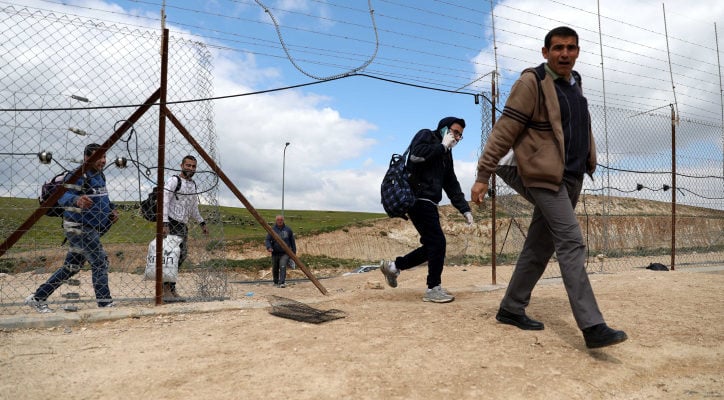Rooting out Palestinian terrorism is the answer, not building walls that create a de facto border for the state, say right-wing officials.
By Batya Jerenberg, World Israel News
Right-wing political and civil leaders panned Sunday’s security cabinet decision to spend hundreds of millions of shekels on rebuilding part of the security fence in northern Samaria as a response to the recent spate of terror attacks by Palestinians from the region.
There were two main arguments against the plan to upgrade 40 kilometers of the current 470-kilometer-long barrier from wire fencing to walls up to nine-meter-high made of concrete blocks and sown with sensors. The initial cost is estimated at some NIS 10 million per kilometer.
One argument was political in that it could be seen as establishing facts on the ground regarding Israel’s ultimate boundaries.
“This is not a security fence, this is a border wall,” Orit Strook of the Religious Zionist party charged. “Naftali Bennett will be remembered for generations as one who – in the midst of a wave of terror, without a majority in the Knesset, with zero public legitimacy and at a time when he leaned on terrorist supporters – used the Prime Minister’s Office to fulfill leftist plans and build a border wall in the heart of Israel.”
Her party’s statement was equally sharp, saying that Bennett was “de facto dividing the country” instead of backing his previous right-wing principles.
“Bennett had been among those who opposed the security barrier and had sworn not to give up an inch of territory from the Land of Israel,” the statement said. “He is now, together with Defense Minister Benny Gantz, separating Judea and Samaria from ‘little Israel’ and establishing a Palestinian state.”
The second argument was practical, as stated by Efrat Mayor Oded Revivi.
“The decision to build a wall around northern Samaria in place of the existing fence is a mistake,” Revivi said, The Jerusalem Post reported. “Instead of addressing the problem that is developing in northern Samaria, they are trying to hide it behind a wall.
“Northern Samaria has long been a violent hotbed of terrorism. Does anyone actually think that the construction of a wall will cause terrorism to disappear? Will the hatred simply fade?” he asked rhetorically.
Revivi’s opposition to Israel’s security wall dates back years, clashing as it does with his philosophy that security is achieved through constant, daily interactions of the most ordinary sort rather than by the two peoples being blocked off from each other.
He also mentioned the fact that the visuals of having a wall running through so much of the country play very badly in the international arena. “It creates anti-Israel sentiments throughout the world,” he said.
Ever since the security barrier was first constructed some 20 years ago, the Palestinians have stayed on message that it is an “apartheid wall” rather than a life-saving security measure. The mantra has sunk in, especially in progressive circles.
Israel built the separation fence following years of violence during the Second Intifada. Palestinian suicide bombings in purely civilian locations such as buses, malls and cafes claimed the lives of more than a thousand Israelis and injured thousands more.
The number of attacks emanating from the Palestinian Authority plummeted once the main sections of the wall were completed. Then-prime minister Ariel Sharon also ordered the IDF into the main Palestinian cities during Operation Defensive Shield, which successfully uprooted the terrorist infrastructure of both Fatah- and Hamas-backed groups.
However, whole sections of the barrier were never completed, and other parts have not been maintained, leading to holes sometimes big enough for cars to drive through. Thousands of Palestinians illegally cross through holes they cut through themselves as well on a daily basis.





